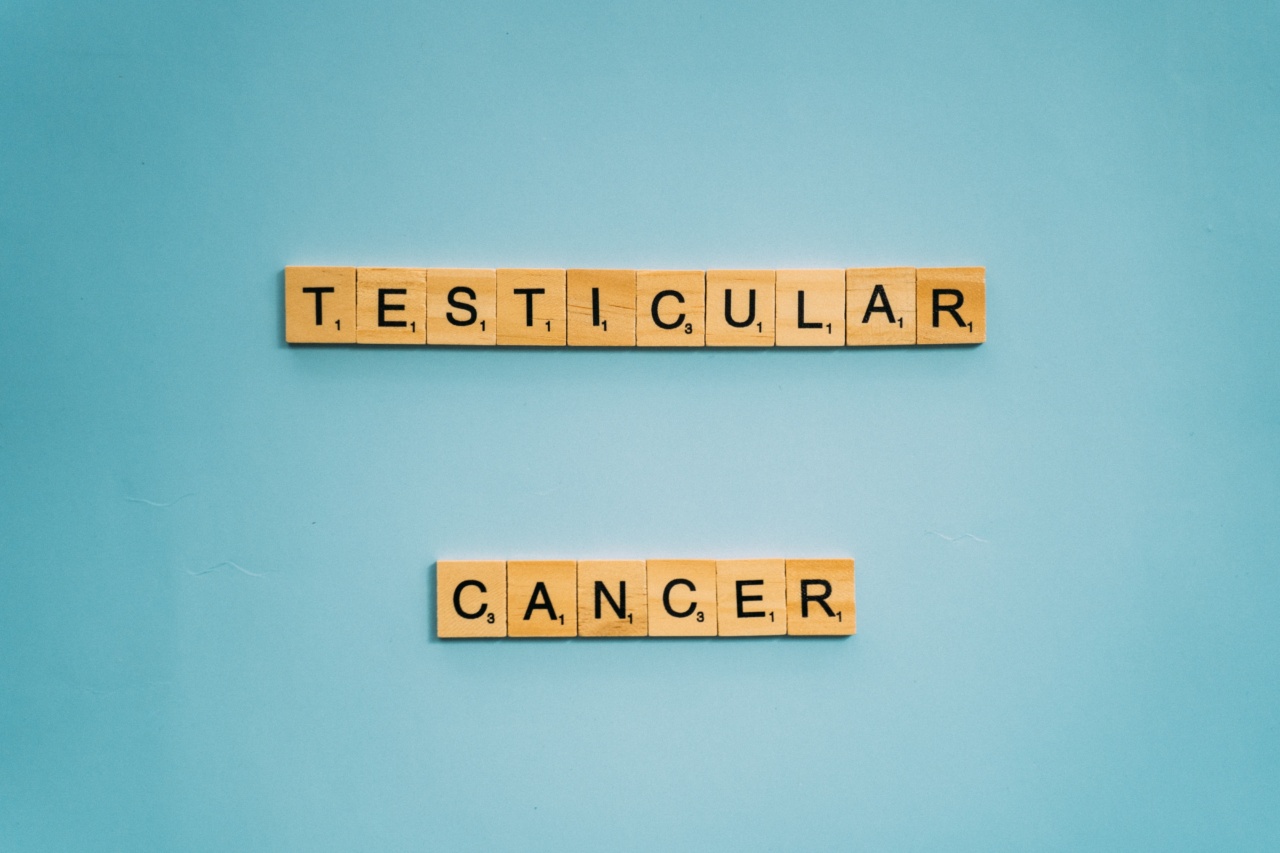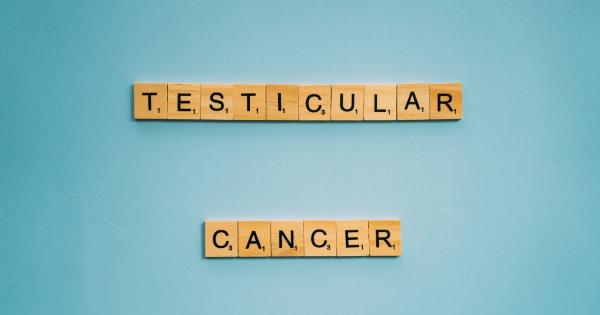Testicular cancer is a type of cancer that affects the testicles, the male sex glands located below the penis in the scrotum. It is a rare form of cancer, accounting for only 1% of all cancer cases in men.
However, when detected early, it is usually treatable and can be cured. Unfortunately, many men ignore the signs and symptoms of testicular cancer, which can result in more serious complications and even death. Here are some of the signs and symptoms of testicular cancer that should not be ignored:.
1. Lump or swelling in the testicle
A lump or swelling in the testicle is the most common sign of testicular cancer. The lump or swelling may be small, hard, painless, and located on either testicle.
Men should perform regular testicular self-examinations to check for any abnormalities or changes in the testicles. If a lump or swelling is detected, it is important to see a doctor immediately for further evaluation and testing.
2. Pain or discomfort in the testicle or scrotum
Pain or discomfort in the testicle or scrotum can also be a sign of testicular cancer. The pain may be dull or sharp, constant or intermittent, and may be accompanied by swelling or tenderness.
Men should also watch for any changes in the size or shape of their testicles, as this may also indicate a problem.
3. Changes in the texture or firmness of the testicle
Sometimes, testicular cancer can cause changes in the texture or firmness of the testicle. The affected testicle may feel harder or firmer than normal, or it may feel lumpy or irregular.
Men should be aware of changes in the texture or consistency of their testicles, as this may be a sign of a problem.
4. Enlargement or tenderness of the breasts
In some cases, testicular cancer can cause an increase in the production of hormones that can lead to enlargement or tenderness of the breasts.
This is because the testicles produce testosterone, a hormone that is responsible for the development of male sex characteristics. If there is a problem with the testicles, such as cancer, it may affect the production of testosterone and other hormones, leading to breast enlargement or tenderness.
5. Lower back pain or abdominal pain
In rare cases, testicular cancer can cause lower back pain or abdominal pain. This occurs when the cancer spreads to other parts of the body, such as the lymph nodes or organs.
Men should be aware of any unusual pain or discomfort in the lower back or abdomen, especially if it is persistent or severe.
6. Fatigue or unexplained weight loss
Testicular cancer can also cause fatigue or unexplained weight loss. This is because cancer cells consume a lot of energy and nutrients from the body, which can lead to weight loss and fatigue.
If you experience unexplained weight loss or fatigue, it is important to see a doctor to determine the cause.
7. Flu-like symptoms
Some men with testicular cancer may experience flu-like symptoms, such as fever, night sweats, and chills. This can occur when the cancer has spread to other parts of the body, such as the lymph nodes or lungs.
If you experience any flu-like symptoms, it is important to see a doctor for further evaluation.
8. Difficulty breathing or chest pain
In rare cases, testicular cancer can spread to the lungs, causing difficulty breathing or chest pain. This may also be accompanied by persistent coughing or wheezing. If you experience any of these symptoms, it is important to see a doctor immediately.
9. Swelling in the legs
Sometimes, testicular cancer can spread to the lymph nodes in the groin area, causing swelling in the legs.
This is because the lymphatic system is responsible for draining excess fluid from the body, and when it is compromised, fluid may accumulate in the legs. If you experience swelling in the legs, especially if it is accompanied by other signs and symptoms of testicular cancer, it is important to see a doctor right away.
10. An overall feeling of unease
Finally, some men with testicular cancer may experience an overall feeling of unease or sense that something is not right.
This may be difficult to pinpoint, but it is important to listen to your body and seek medical attention if you have any concerns.
Conclusion
Testicular cancer is a rare but serious form of cancer that can have serious consequences if left untreated.
It is important to be aware of the signs and symptoms of testicular cancer and to seek medical attention if you experience any of these symptoms. By being proactive and seeking medical attention early, you can improve your chances for a successful outcome.



























